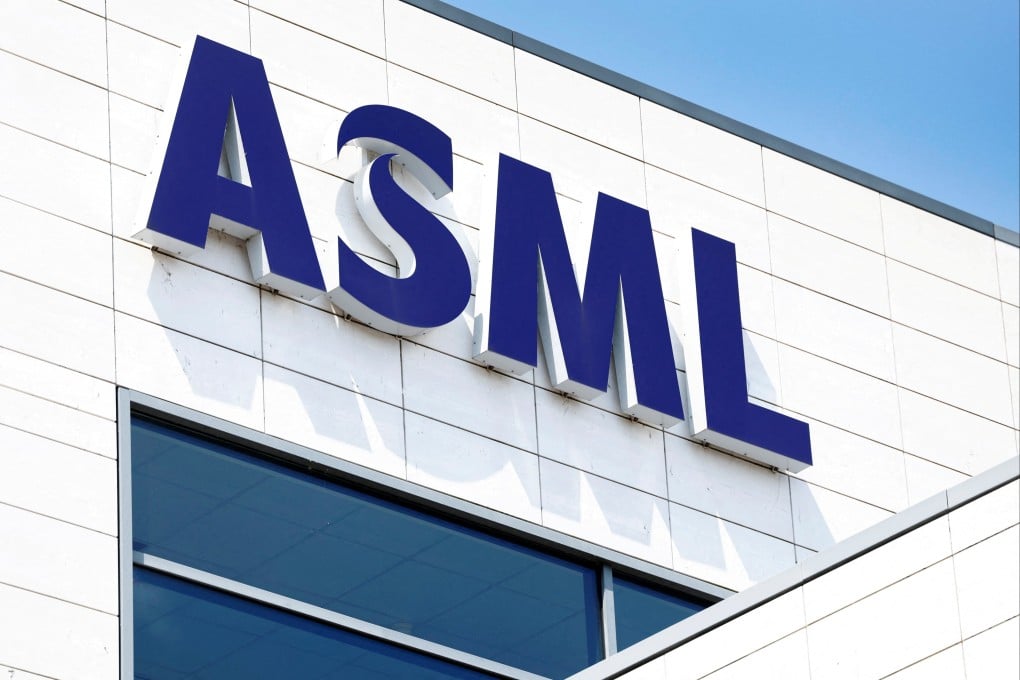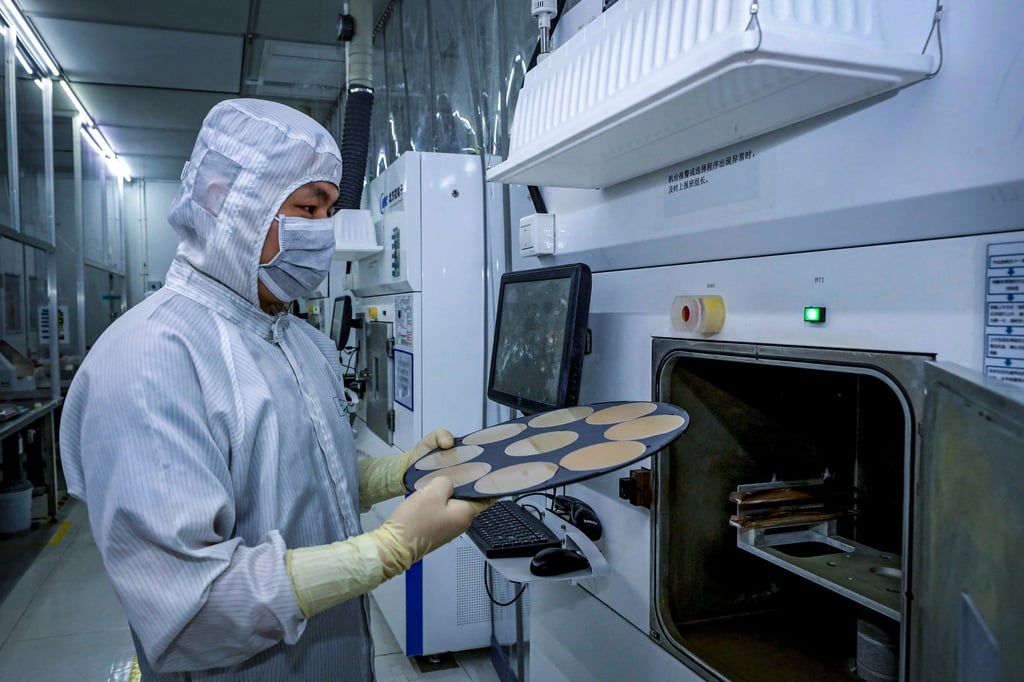ASML, Tokyo Electron dodge new US chip export rules, for now
- The rules are also expected to add more than 120 additional Chinese companies to the entity list, a designation that indicates they are deemed a US national security concern

The US is preparing to exclude semiconductor-equipment makers in the Netherlands and Japan from its latest round of restrictions targeting China, people familiar with the situation said, while warning the plans are fluid and may change.
The Biden administration is working on a sweeping new trade restriction – known as the foreign direct product rule, or FDPR – to keep specific firms in China and other countries of concern from accessing advanced semiconductor technology. But Tokyo Electron, ASML and other chip companies in the Netherlands and Japan are expected to be exempt, said the people, asking not to be identified discussing private negotiations.
The US has tried for years to implement rules that would restrict China’s rise, including repeated rounds of export controls limiting the sale of advanced chips and chipmaking equipment. The new measures, being drafted as part of a larger package, come as Washington, Tokyo and The Hague negotiate whether Dutch and Japanese firms can keep servicing restricted gear already in China – something US firms are barred from doing.

The US has indicated to allies that it may invoke the FDPR, which allows Washington to regulate foreign products made with even the tiniest amounts of American technology, to prevent ASML and Tokyo Electron from repairing their advanced gear in the Asian country, Bloomberg reported earlier.
The rules are also expected to add more than 120 additional Chinese companies to the so-called entity list, a designation that indicates a group has been deemed a US national security concern and includes businesses like Huawei Technologies. It is possible that the FDPR measures will be aimed at those firms, some of the people said, though it remains unclear exactly what technology and which buyers will be restricted.
Through a spokesperson, the Commerce Department said in a statement that it is “continually assessing the evolving threat environment and updating our export controls, as necessary, to protect US national security and safeguard our technological ecosystem. We remain committed to working closely with our allies who share our values.”
ASML and Tokyo Electron shares soared on the prospects of a carve out that would allow them to keep selling to China. The news was reported earlier by Reuters. ASML jumped as much as 11 per cent, while Tokyo Electron’s stock rose 7.4 per cent. Other chip-equipment stocks in Europe and Asia, including ASM International and Disco, also gained.
The only reason why the US would exclude semiconductor equipment made in the Netherlands, and Japan “is that those countries will likely conform to its demands for stricter export policies to China without the US needing to resort to invoking the Foreign Direct Product rule”, said Amir Anvarzadeh of Asymmetric Advisors. “The market may be mistaken to bid these stocks higher with the view that companies domiciled in these countries are free to export chip making tools that US wants restricted to China.”